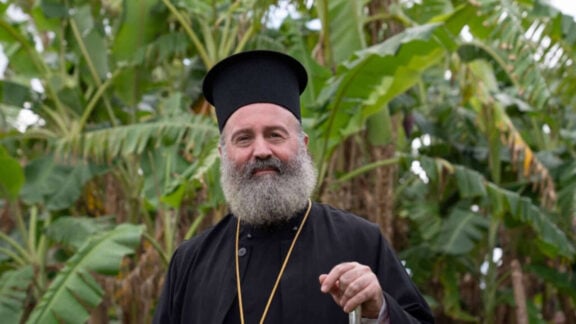“Take this free book”. The pile of well-stacked volumes on the bench of the cafe, sitting next to the day’s papers, could not be ignored. But it is the content of the book that commands and captivates the readers’ attention. For Anthology is exactly what its subtitle claims to be: a collection of “stories of respect, dignity and hope”.
The book features the stories of the tenants of Carrical House, a beautiful rooming house in Hawthorn that has provided shelter – and dignity – to many disadvantaged people, struggling with various issues. Carrical House is run by Servants community housing, which recently celebrated 30 years of actively assisting those in need, a work best illustrated through the stories collected in the two volumes, Anthology and Narrated, which were recently reprinted to further promote the organisation’s work. Both book projects were made possible with the collaboration of a number of schools, as the tenants’ stories were collected by year 11 students. The first students to visit Carrical House and embark on the project were Jeremy Kong and Anthony Antoniadis. Now studying a double degree of law and business at Monash University, the Greek Australian looks back to this experience and describes how it helped him shape his worldview.
What were your first impressions of Carrical House and its residents?
I was firstly taken back by the beauty of the building, and its imposing size. The residents were varied in demeanour, so each gave me different first impressions. I was slightly anxious, but eager to begin.
I can’t remember which of the residents I interviewed first, although I do vividly remember my first conversation with Matt Maudlin (Servants CEO). He was energetic and full of ideas, in a contagious way. Matt introduced me to a resident (whom I will not name for privacy reasons) who made us feel welcome.
I don’t, however, mean ‘welcome’ in the usual sense of being polite, but I also mean in a broader sense. She told us a harrowing story of her youth, but did not expect pity. I realised that she was preparing us for the things we were to hear and experience with other residents.
In this way, she and Matt guided us through what could have been a significantly difficult first encounter with what was a different aspect of living that I had ever experienced. In doing so, I took much from the first meeting, including a healthy dose of motivation and understanding of the collective vision of the project.
How was the process of collecting all these stories and bringing them together?
Challenging, fun and rewarding. Each resident is unique in what they want to share, and how they shared it. Some were difficult to earn the trust of, especially in the capacity of someone who would then write their stories. Bringing the stories together required choosing which to include (some didn’t make the cut for various reasons), working with our brilliant photographer, Esther Ling, and our publishers.
What has been the highlight?
My highlight was learning as much as I could about so many people. The stories and poems are only the surface of what I gleaned, and were often told, with as many of the residents, on words, phrases, and ‘voice’. As such, I tried to avoid necessarily imparting my view of them into the works, but I really wish in some ways I could have. This is because some of the stories may be sad, or sombre, but the people beyond them also capable of great humour, and many other facets. There was some stellar stories that I knew I couldn’t tell due to respect out of confidentiality, and some I was explicitly told not to. Hearing not only these stories, but also fitting them into the deeply complex framework of each person, was my experience.
In what way has this experience affected your viewpoint on the current status of society?
I am fortunate to come from a middle-class background, particularly in a country such as Australia where social welfare and community standards are culturally established. All my grandparents were born in Greece, and immigrated to Australia when they were adults. Many people would describe my background as ‘Greek’, however, I feel very much Australian too. My family has integrated well in Australia, and I feel that I can have a firmly Greek heritage while also identifying as Australian. My family has always highlighted the importance of being grateful for what you have, and to give back when you can.
However, to see first-hand, particularly in the detail I did, the effects that mental illness, marginalisation and social stigma can do, is the only way to internalise the significance of such things. My time with Servants definitely shifted my perspective on how we (as a community, and a state) deal with poverty, rehabilitation and mental illness. I can emphatically say that I would have not been as understanding of the plight that many members of our society have to experience, otherwise, nor as motivated to help change laws that disproportionality impact on the most vulnerable. Many of my political views were moved to the ‘left’ in a sense, but not in an idealistic way; but rather, because of the practicalities. For example, stigmatising mental illness does not treat it, nor does criminal liability for petty crime (caused by necessity) necessarily assist the perpetrator into reintegrating into society.
What advice would you give to any student who’s about to embark on a similar project?
Embrace difficulty. The hardest part was being not only a discerning and caring listener, but also an active listener. By this, I mean prompting further information out of the residents in a respectful and careful way. It also meant knowing when not to ask anything more about a topic. As a young person at the time, I had to temper my curiosity with empathy in order to not pry into what I was being privileged to even glimpse at.
* If you are interested in Servants Community Housing, call (03) 9819 607336 or write to info@servants.org.au









